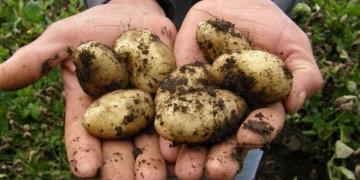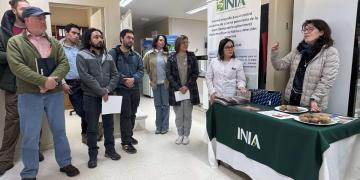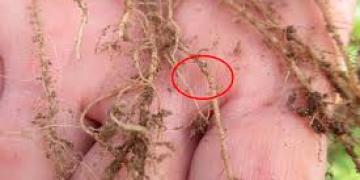Países Bajos: FIGHTING NOVEL PLANT-PARASITIC NEMATODES WITH THE HELP OF NEM-EMERGE PROJECT
Root-knot nematodes have spread further northward in Europe due to climate change and genetic selection, and controlling cyst nematodes has become increasingly challenging.

Major crops like potatoes are at risk from these newly discovered parasite species.
To address these issues and gain a comprehensive understanding of the spread of new nematode species and populations, Wageningen University (WUR) is collaborating with seventeen European partners on a large-scale research and innovation initiative called NEM-EMERGE.
Potatoes are severely threatened by root-knot and cyst nematodes. These nematodes are ranked first and second among the most significant plant-parasitic nematodes.
“They drain energy from the plant, causing a plant condition referred to as ‘fatigue’. As a result, the crop barely grows and is severely weakened leading to crop loss and hence economic damage. Annually, root-knot nematodes alone cause yield losses of several billion euros. Next to crop rotation and resistant varieties, growers currently use broad-spectrum chemicals to control these nematodes which have unwanted negative side-effects on nature and the environment,” Researcher Hans Helder explained how these nematodes work.
As nematodes pose an increasing threat to potatoes, the project proposal NEM-EMERGE coordinated from WUR has received financing of EUR7m from the EU within the Horizon Europe program in the field of Emerging plant diseases.
“Among other things, we are going to investigate the current distribution of root-knot nematodes: where exactly are they currently occurring? From southern Turkey and Spain to northern Germany, we are going to take soil samples about every two to three hundred kilometers to investigate the presence of plant-parasitic nematodes. Based on the resulting picture, modelers can predict where we can expect them in five or 15 years,” Helder detailed what the funds are to be spent on.
Misfunctioning of Resistance Genes
Helders’ colleague Aska Goverse aims to tackle the instability of resistance genes in plants under higher temperatures in one of the other work packages.
“We have been working on the molecular mechanisms that underly the (mis)functioning of resistance genes for several years. We have a pretty good view of the factors determining their function for some diseases, but not yet for these plant-parasitic nematodes. In the case of tomatoes, we often don’t know whether the loss of resistance is caused by temperature increase or genetic selection. That makes predicting further developments challenging. Another challenge lies in distinguishing between different populations of parasitic nematodes and determining which ones can still be controlled and which can’t,” she declared.
The researchers will work on solutions in close cooperation with end-users. As the use of pesticides is increasingly restricted within the EU, farmers seek alternative methods.
“Growers require knowledge and practical tools to make a transition towards sustainable agriculture. The EU is steering towards integrated crop management, but what tools are needed to reach that goal? How can we for instance boost the soil’s disease-suppressive potential? At the same time, researchers want to know the demands and the conditions for innovation from an end-user’s perspective. The ultimate goal is to develop solutions that can be put into practice,” Goverse concluded.
Fuente: https://www.potatobusiness.com/trends-news/fighting-novel-plant-parasitic-nematodes-with-the-help-of-nem-emerge-project/




